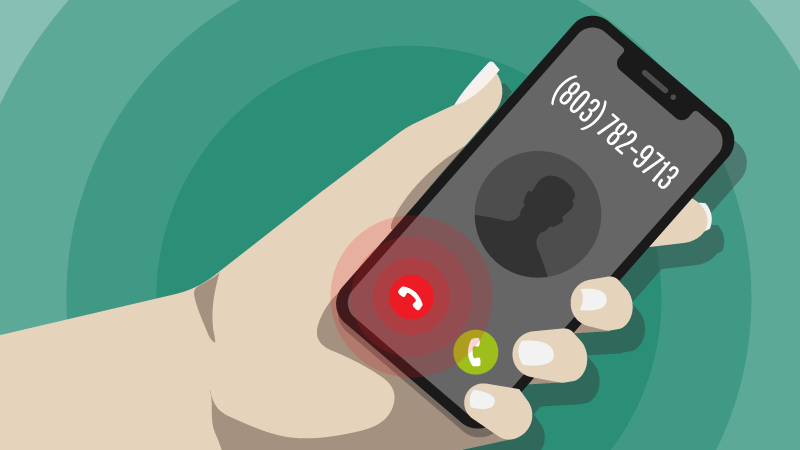
Fraud Education
About

Caller ID Spoofing
Fraudsters can easily “spoof” or fake real phone numbers using technology. When a number is spoofed, the receiver’s Caller ID displays a false number that might appear local or trusted.
Sadly, one of the most popular callers impersonated is a bank or financial institution. Scammers pose as a representative in hopes of gaining sensitive information such as online banking user names and passwords, debit or credit cards, PIN numbers or security question answers.
How can you spot Caller ID spoofing?
The call may come from a bank but one that you don’t have accounts with. Or the spoofer could pose as a representative of a bank or financial institution that you have an account with. One of the following suspicious scenarios may occur:
- The caller may tell you they have detected fraud on your account, and they need your online account user name to secure your account.
- The scammer asks for your banking PIN number, password or credit card CVV
- The scammer asks you to call a phone number, keeps the phone line open and fakes a dial tone making it seem like you have called the real financial institution
- The caller may have some information, like the last four digits of an account, but needs your PIN to “verify” your identity
Requests for account numbers, PINs, social security numbers, birthdays, account user names and passwords, or answers to security questions are red flags.

What steps help stop Caller ID spoofing?
If you receive an unsolicited request online, by phone, or via text or email from a “First Community representative” asking for confidential banking or personal information be on guard. Requests for account numbers, PINs, social security numbers, birthdays, account user names and passwords, or answers to security questions are red flags. Keep these other tips in mind to help avoid becoming the victim of fraud:
- Don’t answer calls from unknown numbers; if you answer a call accidentally, hang up immediately
- Don’t trust a message that may appear very authentic
- If you answer a call and get a recording asking you to press a button if you want to opt out of future calls, simply hang up
- Do not respond to questions, especially those that can be answered with yes or no which might be recorded by the caller
- Be cautious if you are being pressured for information
- If you have not signed up for text alerts for any accounts, do not respond to any messages that seem to come from a bank or your bank
- Review your statements and online banking transactions regularly for fraudulent or suspicious transactions
If you think you are on a call that is spoofing you, hang up immediately. Call your bank using a known number such like a number from the bank’s website or the number on the back of your debit card to call the bank and speak with an actual bank employee.
Sources: fcc.gov



